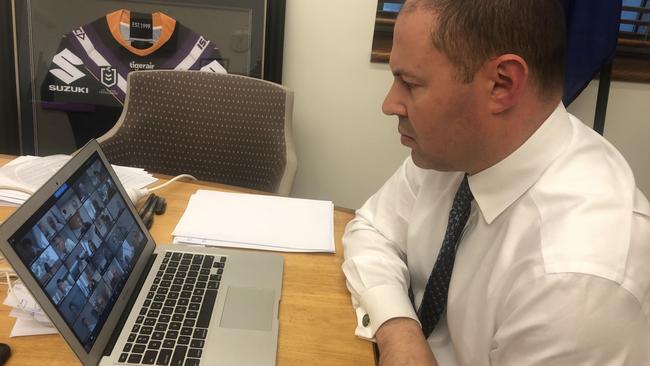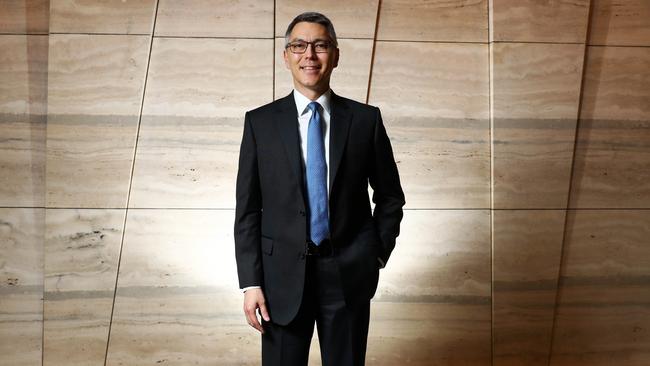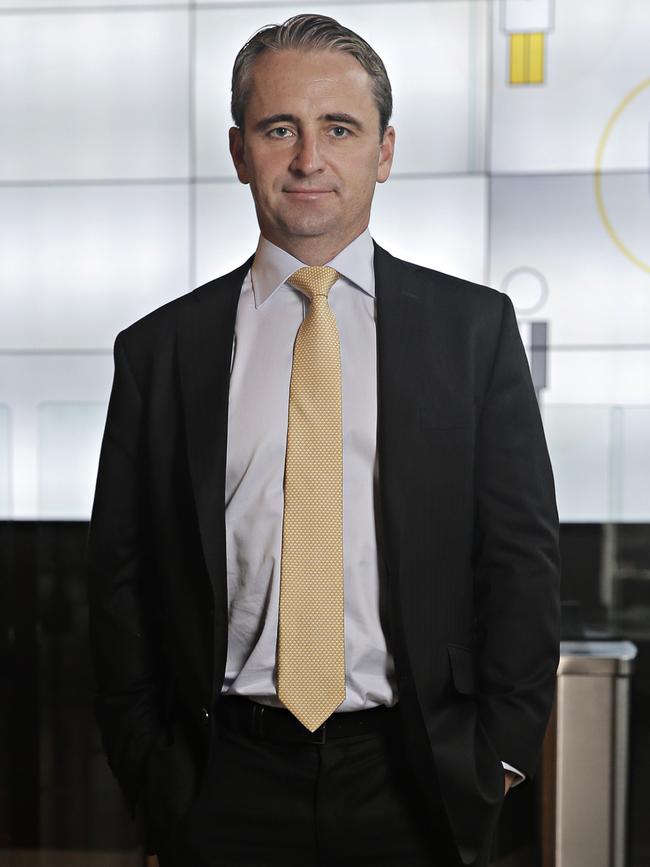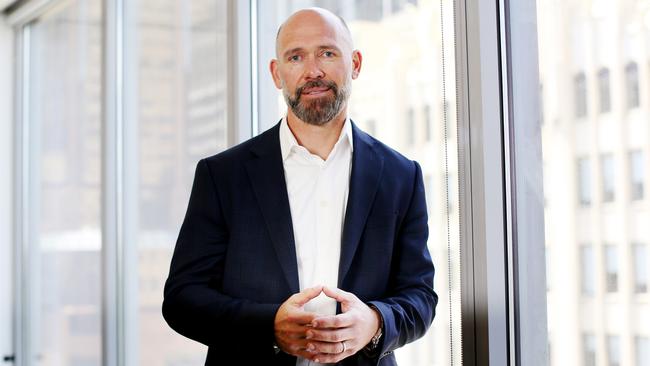Corporate leaders back federal government’s urgent reform agenda
Big business has embraced the policy reform agenda with a genuine hope key economic changes may see the light of day in the wake of the COVID-19 crisis.

Big business has embraced the policy reform agenda with a genuine hope key economic changes may see the light of day in the wake of the COVID-19 crisis, with a sense of urgency and unity around the need for change.
Reserve Bank governor Philip Lowe on Tuesday argued the case for urgent reform and the Business Council of Australia met by video conference with Treasurer Josh Frydenberg the following day to flesh out the agenda, which covered tax reform, industrial relations reform and deregulation.
The Weekend Australian spoke to the business chiefs who attended the meeting to learn what they asked for.
While business wants to get back to normal and remove lockdown restrictions, not everyone supports the call to rush back, with Origin’s Frank Calabria saying his small business customers do not have the cash to survive a stop-start recovery.
At the outset BHP boss Mike Henry and others welcomed the inclusive approach from the government and BCA chief Tim Reed praised the leadership shown by Mr Frydenberg and Prime Minister Scott Morrison.
Commonwealth Bank boss Matt Comyn said the common purposes evident in the crisis “presents a once-in-a-generation opportunity to look at our economic settings and make sure they are calibrated for growth and equity”.

“Now is the time to build,” he added. The national cabinet process appears to be working better than predecessors like COAG because of this leadership, a national sense of urgency and single-minded purpose from the state and federal governments.
Wesfarmers boss Rob Scott praised the national cabinet process, telling The Weekend Australian “there is a really good engagement between unions, government and business”.
BCA’s Mr Reed said he believed that sense of urgency would remain even after the health crisis eased because the economy would be suffering the effects for a long time to come.
“The economic impact is very large but the difference between now and the world wars is people came home from the wars with a sense of optimism that is hard to engender today,” Mr Reed said.
“We didn’t go into this with a booming economy and there will be big holes in the economy in travel, leisure and hospitality.”

BlueScope CEO Mark Vassella said there was “a need to stimulate the housing sector through things like increasing spending in affordable and social housing, tax reform (removing stamp duty) and speeding up land releases”.
“Investment in infrastructure with little pay back needs to be avoided,” he added.
National Australia Bank CEO Ross McEwan said it was “important we keep working together as we are now”. Westpac’s Peter King said: “If government, business and other stakeholders can continue to work together on the other side of COVID-19 Australia can have genuine reform that will make us more productive and also improve the customer experience”.
“This includes removing impediments to accelerate the digitisation of business processes and consistent regulations across the federation,” he added.
The big four banks, which came under criticism this week from Mr Morrison for sluggish lending to small and mid-sized business to support the JobKeeper program.
For Mr Frydenberg, who hosted the video call from Canberra, the main point of the meeting was to find out what business leaders were seeing on the ground. The conversation also allowed business leaders to raise what they think will be key to the recovery in terms of the policy landscape.
BCA’s Mr Reed, who previously headed accounting software firm MYOB, said the digital economy would be a big beneficiary of the post-virus world. “We have had working demonstration of the benefits of the economy which will form a new base to work with,” he said. Working from home has changed video conferencing from something tech companies do to a mainstream way of communicating with friends, family and work meetings.
Having made the step forward into the digital economy, there is now a need to drive it forward starting with removing regulations.

Telstra’s Andy Penn said: “We are seeing the forced acceleration of the connected world and the digitisation of the economy.
“Investment will have the dual benefits of improving efficiency but will also inject money into the economy at a time it is sorely needed,” he added
Mr Penn said it would “also require the systematic removal of bureaucracy and digital unfriendly regulation to accelerate our recovery”.
The banking industry is proceeding with its open banking policy, which will eventually allow people to share loan documents with other potential lenders along with other data. Origin’s Mr Calabria said: “We have earned the right to start thinking about the economic recovery, but if we are to ease restrictions and get the economy moving again it has to happen in a careful and measured way.”
“That enables us to move forward with confidence when the time is right and avoid the risk of having to implement stronger measures again,” he added.
Mr Calabria said his customer base didn’t “have large cash reserves to be able to survive through a stop-start lockdown”.
Coles chief executive Steven Cain has praised the national cabinet decisions during the crisis, including cutting regulations controlling issues like delivery time curfews and personnel management.
The question is now whether the rules should be changed permanently.
Mr Reed said the immediate priority was to get the health system updated, and proceed with a host of smaller $300m-type infrastructure projects to boost the economy and long-term policy reform.
“It is important to get these on the agenda today and in train,” he said.
One of the key early reforms is deregulation to allow the economy the freedom to grow.
Stockland boss Mark Steinert said he had around 10 projects worth $6.4bn ready to go but needed planning approval.




To join the conversation, please log in. Don't have an account? Register
Join the conversation, you are commenting as Logout